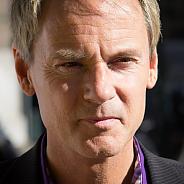Harry van Bommel: NATO summit puts Russia under further pressure
Harry van Bommel: NATO summit puts Russia under further pressure
On 8th and 9th July Dutch Prime Minister Mark Rutte, Foreign Minister Bert Koenders and Defence Minister Jeanine Hennis-Plasschaert will attend the NATO summit in Warsaw. Every indication is that the military alliance will seize the opportunity of the summit to escalate still further the already mounting tensions with Russia. It is of huge importance that this is prevented.
 There can be no misunderstanding when it comes to the fact that Russia has in part brought the current enmity of the west down on itself with the illegal annexation of the Crimea and the military interference in east Ukraine. But look at the broader context, and you will see also that the west has foregone no opportunity to provoke the Russians.
There can be no misunderstanding when it comes to the fact that Russia has in part brought the current enmity of the west down on itself with the illegal annexation of the Crimea and the military interference in east Ukraine. But look at the broader context, and you will see also that the west has foregone no opportunity to provoke the Russians.
Cold War
Things were already going awry at the end of the Cold War, in fact, with the reunification of Germany in 1990, when it was decided that this new Germany, the country which during the twentieth century had twice invaded Russia, would be a member of NATO. This brought the former East Germany directly into the western sphere of influence. In exchange, the alliance would not undergo further enlargement to the east. Western involvement later negated this deal, but Russian politicians to this day maintain that, even if it wasn’t laid down in black and white, a solid agreement was reached.
Following German unification many other countries joined NATO, states which during the Cold War were to be found in the Soviet sphere of influence or were even themselves actual Soviet Republics. Examples include Poland, the Czech Republic and Hungary (1999), Estonia, Latvia and Lithuania (2004), to which might be added the former Yugoslav republic of Croatia (2009). Furthermore, it was stated in 2008 that Georgia and Ukraine would in time become NATO members. Spread a map of Europe out and examine this enlargement of NATO and you’ll understand why in the east they might feel somewhat cornered.
Rocket shield
Another thorn is Russia’s side is the American rocket shield, which has already been in development for many years. Recently, a section of this shield was brought into use in Romania. Officially the rocket shield is aimed at a supposed threat from long-distance rockets fired from Iran, but the Russians are convinced that they are the actual target, all the more now that a deal has been agreed with Iran over its nuclear programme, which has taken the sting out of the conflict. However that may be, firm guarantees from NATO states that Russia need have no worries about the rocket shield have not been forthcoming.
Further pressure
The impending NATO summit will also be used to put further pressure on relations with Russia. In the runup to the meeting an international military exercise was conducted in Poland involving tens of thousands of NATO soldiers, the biggest such exercise since the end of the Cold War. Even outside Russia this has raised eyebrows. German Defence Minister Frank-Walter Steinmeier, for example, remarked in response to it that we should not be cranking up tensions through sabre-rattling and cold war language.
Possibly the most important item on the agenda of the Warsaw summit is the stationing of four battalions of NATO troops on the territory of Russia’s neighbours Estonia, Latvia, Lithuania and Poland. That there is an extremely understandable fear in these countries of the claws of the Russian bear does not remove the fact that equally great concerns exist on the other side of the border in relation to the permanent presence of a hostile military alliance.
It has become doubly clear just where the enlargement of the western sphere of influence can lead. In 2008 Georgia was promised membership of NATO. The Georgian army responded by quickly – after a few skirmishes here and there – invading a rebel pro-Russian province in the north of the country. There followed a Russian intervention. At the end of 2013 and the beginning of 2014, Ukraine, which was also promised NATO membership, was faced with a choice of associating with Russia or the European Union. The choice of the EU led on the Russian side to the fear that military interests in Ukraine would be lost. Once again there was an armed intervention and the Crimea was annexed.
New confrontations
If we continue along the same path of continual confrontation between east and west, both sides armed to the teeth with nuclear weapons, the consequences are incalculable. Instead of fuelling a new Cold War the west would do a lot better to devote itself fully to de-escalation, to the normalisation of relations with the huge neighbour to the east. That could be achieved by in the future renouncing large-scale and unnecessary military exercises on the Russian border and by not stationing thousands of NATO troops in countries on that border. Above all it would be a very welcome step should NATO in Warsaw decide in the future to abandon any further expansion to the east.
This article first appeared, in the original Dutch, on the website Joop.nl
- See also:
- World
